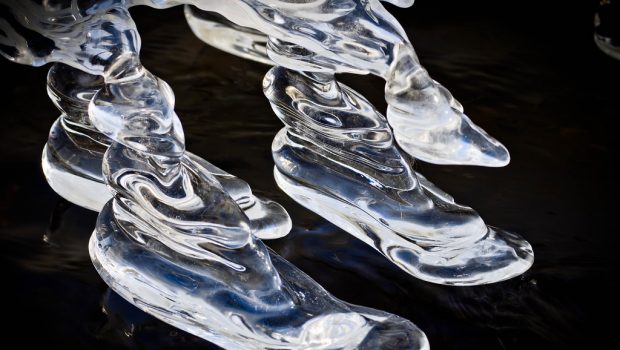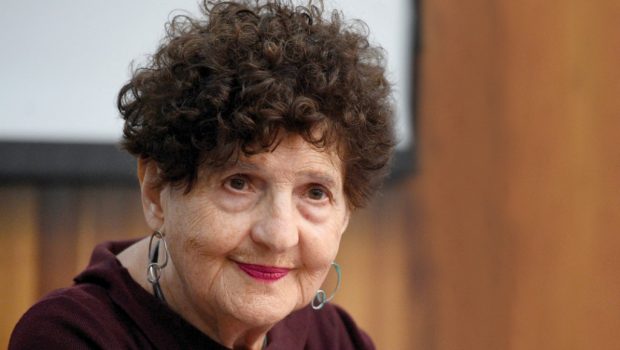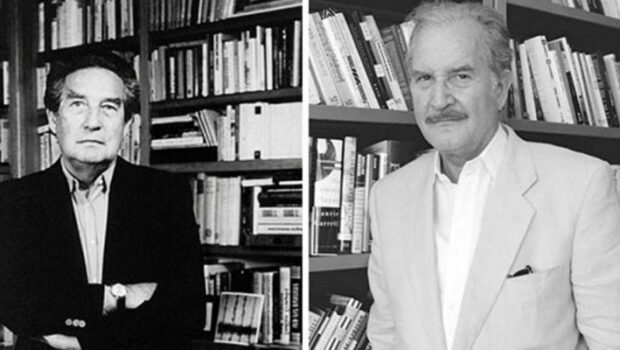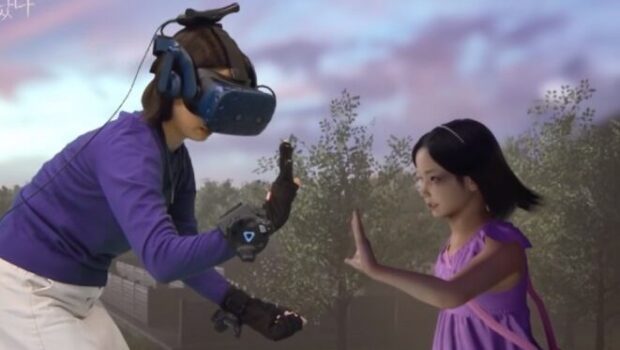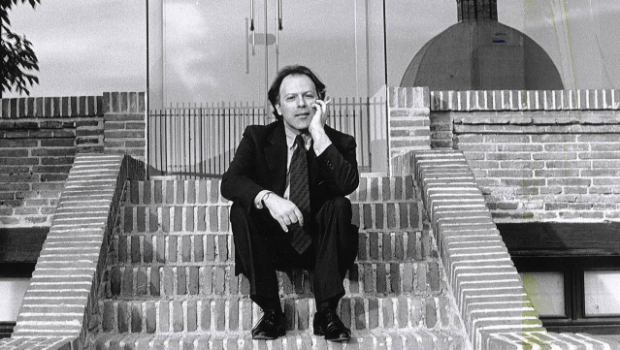Shoes Make the Man
David Unger
For David Campbell and Joseph Lingad
When Rick died of pancreatic cancer, his wife Gina gave me seven pairs of his shoes. It wasn’t as if I hankered after his footwear, but we both had the same foot size— ten—and Gina refused to give his shoes to Robert, her brother-in-law, who had eyed them in the same ravenous way he had drooled after all the fine clothes Rick left behind.
Though not twins, the brothers were remarkably similar in size, but not in stature. Certainly not in character. There were limits to in-law charity. Gina was not about to give Robert her husband’s shoes.
So this is how I came to inherit Rick’s boots, loafers, cordovans, and wing tips. All of them were beautifully made; some were handcrafted. All were expensive.
*
Rick had been the director of a Minnesota not-for-profit social service agency and made a good living wage. Instead of buying fancy cars and increasingly bigger homes, Rick indulged his sense of taste. He owned a lovely LeCoulture watch with the original mechanism, his glasses frames came from Oliver Peoples; he loved Waterman pens, English badger shaving brushes and beautiful one-of-a-kind silk ties. He wasn’t a fussy dresser, but rather adopted the quiet elegance of an executive whose agency tended to hardscrabble clients in St. Paul.
Rick’s elegance was less about vanity than pleasure. What he treasured most was being distinctive. He wore cashmere sweaters in winter and linen and Egyptian cotton shirts during the summer, all tapered to his build. But mostly he was obsessed with shoes. They were exquisite, fitting his feet like kid gloves.
And now they were mine.
*
I met Rick when he was a guest speaker at a social services convention in Columbus, Ohio. We kind of hit it off. Whenever he and Gina came to New York, which was at least twice a year, we would dine together. Since he travelled on expense account, Rick always picked up the tab. We did our part by selecting the restaurant and driving them around town. We laughed a lot together; laughter sealed our friendship.
His death was awful. I mourn it still.
*
The most obvious fear of wearing someone’s shoes is that you begin to act like the person, sort of “slip into his shoes.” This didn’t happen to me. I continued to be myself, as far as I could tell, only my footwear became much more remarkable. I started thinking of my Tom McAn and Bostonians as lifeless shoes, dull, lacking character, workman-like, almost pedestrian. Rick’s had soul and drew ahs whenever I wore them.
I’m a New York City social worker on a limited income, but his shoes gave me status. I felt like Elton John, when I visited clients. It was all because of my shoes.
*
As a by-product of this inheritance, I began pursuing previously owned shoes
when I had his re-heeled and re-soled. Talking to the mostly Latin American cobblers, I discovered that their wives took buses to Philadelphia or Hartford to buy shoes that needed restoring. Talking to the wives (whose own shoes were ugly and shapeless), I discovered a huge underground of shoe buyers who traveled along the Eastern Seaboard to buy discarded shoes.
Where did these shoes originate? Some came from department stores where customers returned them after days of wear or from thrift shops overwhelmed by donations from relatives of the recently departed. The Volunteers of America and the Salvation Army held monthly shoe auctions, usually on Wednesday afternoons.
Men buy thrift shop suits, shirts and slacks, but rarely used shoes.
Carina, my Harlem source, was very entrepreneurial and imaginative. She established relationships with certain undertakers who boldly asked certain widows what they were going to do with their husband’s shoes knowing they would never bring them to thrift shops.
At first, my wife was horrified by my shoe-buying habit. But when I came home with a beautiful pair of Kenneth Cole’s for $25—new heels and soles, spaghetti shoelaces and spotlessly polished–, she began to approve. She grew even less skeptical when I wore these shoes and saw how my baggy trousers were transformed. She was happy that I wouldn’t have to “break them in,” something I hated doing. I resoled old pairs three or four times until the uppers were so scraped and distressed that the leather simply collapsed. I simply refused to shop for new shoes.
*
My job requires much walking. I’ve entered homes filled with unspeakable
poverty; I’ve witnessed mice gnawing on cribs, icy water gurgling out of broken pipes and breath that freezes. My feet have felt at a loss for words at moments like this; covered as they are by socks and the warmest of shoes, I am unable to express sympathy.
*
There are many proverbs about wearing shoes: the idea of stepping into someone’s shoes or following in your father’s footsteps. I also know that being hit by a shoe is a colossal Muslim insult (I would never throw Rick’s shoes at anyone).
African-Americans have some well-documented prohibitions about wearing the shoes of the dead; they fear that all their weaknesses will rise up into your body—not only weaknesses, but diseases and foibles as well. The last thing I need is to have someone else’s problems occupying my body.
And African-American women never buy shoes for their men for fear they will walk out on them.
*
My hunt became an obsession. I did not go to dumps or garbage cans looking for
abandoned shoes. You would never catch me opening up plastic bags or scrounging in garbage dumps for them.
I never went to Buddhist homes to pilfer them. I have self-respect.
No one but my wife knows of my habit.
I know that many men admire women’s legs, breasts, all kinds of body parts, but I only obsess on men’s shoes. You could say I have a prurient appreciation of them, though I don’t particular care for feet.
Somewhere I read that Marilyn Monroe said if you give a girl the right shoes, she’ll conquer the world. I won’t be conquering any worlds, I know, but beautiful shoes ensure that I am noticed, even if it all happens inside my head.
*
Nowadays, when I enter my office building on Orchard Street, people don’t want to see the strips of red skin on my face that resemble the Polish flag and they still look down to the floor. After 45 years, I no longer think about the countless operations I’ve had on my face or the way people avoid looking at me.
*
When I die, I want to be embalmed in white linen. My head should be unsheathed
and my feet exposed, resting on a white silk cushion, as if about to enter a river into paradise. I would like at least five pairs of shoes in my coffin, to celebrate the many roads I’ve walked and to remind me of my friend.
Thank you Gina but most of all, thank you Rick.
*Image by Tomas Kadarpik
 David Unger is a writer and translator. In 2014 he was awarded with the Miguel Angel Asturias National Literature Prize. He is the author of The Mastermind (Akashic Books, 2016, Planeta Mexico: 2015), La Casita: Forgetting Spanish (Mexico: CIDCLI, 2014), The price of the leak (Guatemala: F and G Editores, 2013), The Price of Escape (New York: Akashic Books, 2011), For me, you are divine (Mexico: Random House Mondadori, 2011), among many other titles.
David Unger is a writer and translator. In 2014 he was awarded with the Miguel Angel Asturias National Literature Prize. He is the author of The Mastermind (Akashic Books, 2016, Planeta Mexico: 2015), La Casita: Forgetting Spanish (Mexico: CIDCLI, 2014), The price of the leak (Guatemala: F and G Editores, 2013), The Price of Escape (New York: Akashic Books, 2011), For me, you are divine (Mexico: Random House Mondadori, 2011), among many other titles.
©LiteralPublishing
Posted: April 14, 2019 at 10:15 pm


